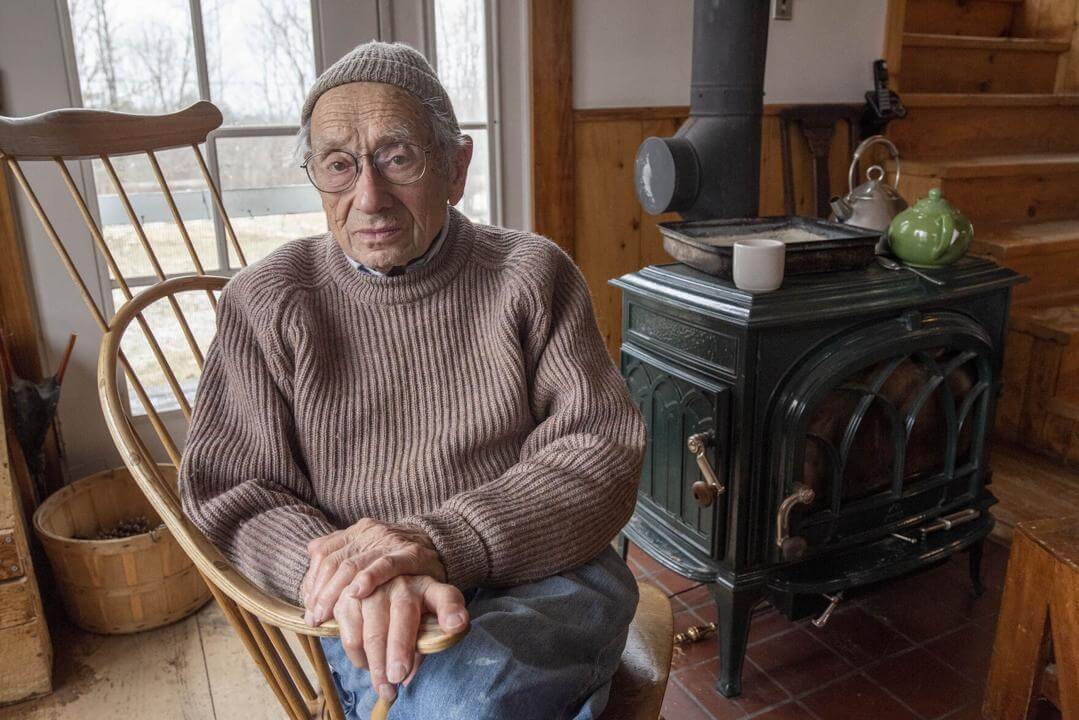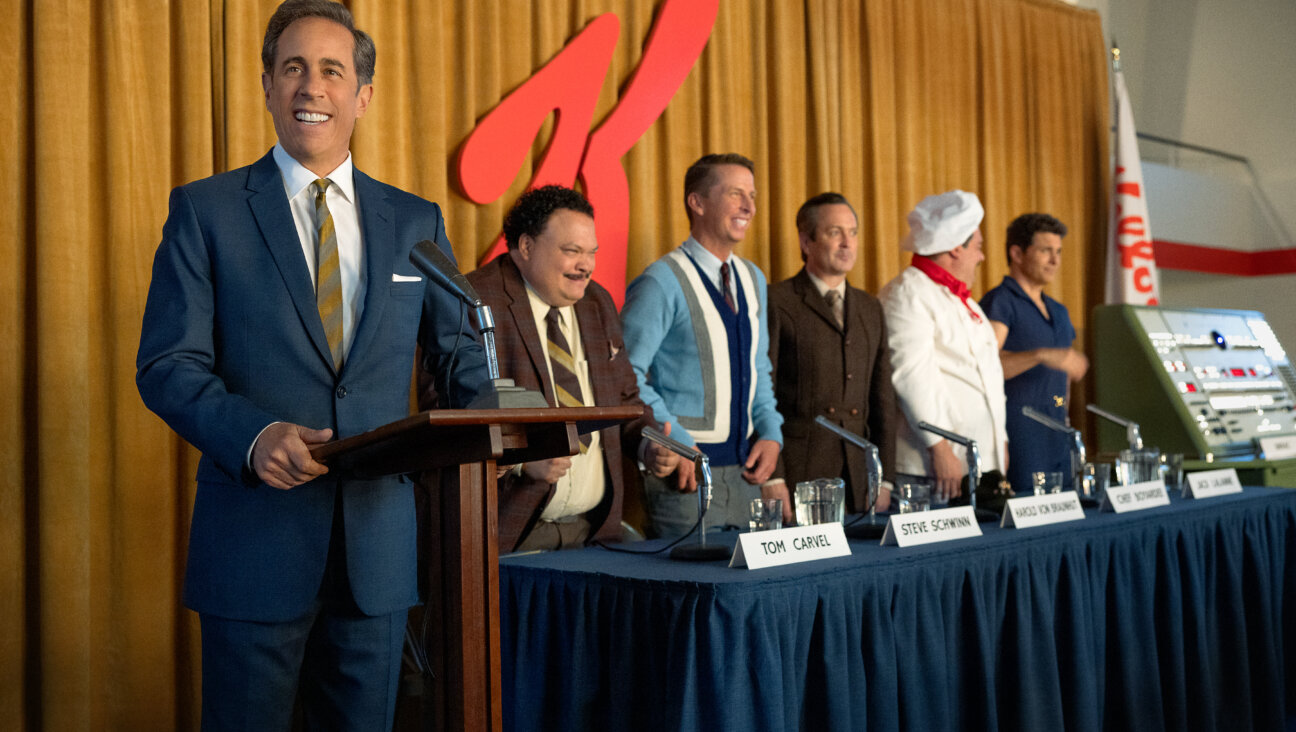A Test of Faith

Rite of Passage: From left, Ohad Knoller, Hani Furstenberg and Hinave Hilel Pney El in ?Halakeh.?
During a recent interview with the Forward, the Jerusalem-born director and activist Avigail Sperber described her new film, “Halakeh,” as a “small story… through which one can understand the place of a woman in Jewish religious culture.” Starring the Israeli actors Ohad Knoller and Hani Furstenberg, “Halakeh” documents the emotional journey of a young observant couple, as they travel to Mount Meron to participate in the halakeh ceremony — the shearing of a male child’s hair on the Lag B’Omer following his third birthday. The film dissects the couple’s relationship, which is placed under strain by the differing interpretations the couple make of their religious faith.
Sperber, an observant Jew, is also a feminist campaigner and the founder of Bat Kol. The organization offers support services to observant lesbians who wish to fulfill both their religious and sexual identities. Recently, she sat down in New York with Akin Ajayi to discuss “Halakeh,” filmmaking and observant life, and the place of lesbians within the Orthodox community.
Akin Ajayi: Tell me a little about “Halakeh,” and what attracted you to the subject matter.
Avigail Sperber: Two things attracted me to the film. The first… was the opportunity to explore the place of the woman in observant life. There are several points of transition in Jewish religious culture — the brit, the halakeh, the bar mitzvah — with no role for women: They are excluded. It is the same at the synagogue, where we do not participate but are merely onlookers. I hoped that with this small story, one might begin to appreciate, through the character of the wife, the place of women in Jewish religious culture. I was also interested in exploring the concept of spiritual awakening, and how people often ignore the relationship between people at the expense of the relationship between the [newly religious] and God. In the film, the husband [newly steeped in the Bratslav Chasidic tradition] puts his relationship with God first, before his relationship with his wife. I think he gets this wrong, I think that he forgets that in the Jewish religion, the most important relationship is the interaction between people.
Given the subject matter and the setting, was the film difficult to shoot?
There were challenges, because we filmed a fiction within documentary … settings. The yeshiva featured is a real one. We filmed Ohad davening, participating in morning prayers, but we obviously couldn’t say “OK, cut” and start again. It was the same at Mount Meron. It seemed straightforward when we scouted for locations, but on the day of filming itself there were half a million people there. … It was crazy! That said, this was the first day of filming, a month before the main shoot, and it was very inspiring for all of us, especially the non-religious members of cast and crew. It was important to see how much the halakeh, the ceremony around which our fiction was based, meant to the participants.
Is filmmaking accepted as a legitimate endeavor within the Orthodox religious community?
It has always been a complicated issue, not just from the religious perspective of films potentially containing unsuitable material, but also because film was seen as entertainment, rather than art — not important, not a productive use of one’s time. Beyond this, there was no history in the religious communities of people expressing themselves through art, except for the purposes of religious ritual. But this has changed over the last 15 years or so, with the establishment of art schools, teaching in high schools and so on. There is a growing appreciation of art as a tool for communication, and an acceptance of people with faith using art for self-expression.
What brought you to filmmaking?
I started off as a photographer. The visual aspect of filmmaking has always interested me. Beyond this, the storytelling aspect, the capacity to create art and to affect people in some way, appeals to me. Art can sometimes seem distant and remote: Filmmaking … is a way of saying something to the world. I hope that there is something I can contribute to this discussion, from my life experience and from what I see in the world about me.
What prompted the formation of Bat Kol, and what are the organization’s objectives?
I want to stay a part of the Orthodox community, and make space within the community for homosexuals. It was never an option to deny either my religious identity or my sexual identity — not to live either of these would mean to tear myself apart. Being religious means being part of a community, part of a family, and I don’t think building a separate gay Orthodox community is the answer. The problem was never about being gay; it is about being gay and not being accepted by one’s community. We (the founders of Bat Kol) understood that the real changes we needed to make were within the community, beyond just giving support to women in the same position as us. [We seek] to educate, and to change the understanding beyond what it is today. Long-term objectives? That there won’t be a need for Bat Kol. In the meantime, support for the individual, professional and religious, and for their families too. When a woman comes out, she may have been dealing with the issue privately for some time. Her family too needs support to make the same journey.

I hope you appreciated this article. Before you go, I’d like to ask you to please support the Forward’s award-winning, nonprofit journalism during this critical time.
Now more than ever, American Jews need independent news they can trust, with reporting driven by truth, not ideology. We serve you, not any ideological agenda.
At a time when other newsrooms are closing or cutting back, the Forward has removed its paywall and invested additional resources to report on the ground from Israel and around the U.S. on the impact of the war, rising antisemitism and the protests on college campuses.
Readers like you make it all possible. Support our work by becoming a Forward Member and connect with our journalism and your community.
Make a gift of any size and become a Forward member today. You’ll support our mission to tell the American Jewish story fully and fairly.
— Rachel Fishman Feddersen, Publisher and CEO
Join our mission to tell the Jewish story fully and fairly.























